|
Emerge Tennessee is a premier training program for Democratic women in the state and part of a national organization called Emerge America. According to Executive Director Freda Player, they have trained around 5,000 women nationwide, and more than 1,000 were elected to office. In Tennessee, Emerge has trained nearly 150 women, and 40 have been elected or appointed to office. How does Emerge Tennessee recruit women who want to run, but may not know how? According to Freda, when the program began, they sought out those who had run before but did not have all the tools in their toolbelt. As the program progressed, and after the 2016 election, they say more women came forward wanting to become more involved and do something to help their communities, to help other women who are struggling. Now as women go to them, they continue to reach out to those who are advocating within the city council or their local school board and just have a conversation with those women about government, if they are ready to run, and if they are considering running, what they will need help with. As women decide to run for government, or if their decision is still under consideration, they can go through one of Emerge Tennessee's three Candidate Training programs. Through Emerge Tennessee's signature program, women will go through a six-month, 70-hour program that will teach them how to fundraise, spread their story, find their win number, use digital media, and more. Women will speak to a variety of campaign and election experts, along with other women who have been elected or appointed to office. Some people have a very specific image of a candidate and even us as women.  For those with a partner and children, running to become an elected official can be difficult. Emerge will bring in spouses of candidates and elected officials and speak on what it was like to go through the process, being on that side of the campaign, how they supported their partner, and how they made the decision as a family to go through this. Some women may not want to commit to the Signature Training program but still want to learn, this is where the Step Forward program comes in. This program helps women figure out their path to political leadership and how to get started. Studies show that women in office are more involved with their community and gender-salient issues such as healthcare, the economy, education, and the environment. Women are natural leaders, they're leaders in their community, whether it's in their neighborhood association, HOA, PTO booster, church group, you know, their local advocacy group, they've already doing it, and that's where their network in their base comes from. And so they've already had that experience before they run. And that's usually the foundation where a lot of it starts Freda says women tend to be overqualified compared to men. She says it takes seven times to talk a woman into running for office, but if you speak to a man once, he is more likely to say yes. Freda says as women are already taking on roles in different groups they already have the experience to run because leading and networking is usually the foundation of where campaigns begin. If you don't think you're like this polish lawyer, businesswoman come from this pedigree of family or this political legacy, people are tired of that they don't want that they want to know that you have struggled and overcome. I also spoke to Freda on seeing names like Tennessee Senator London Lamar, Senator Heidi Campbell, and council women who have gone through the program, ran for office, and were elected. She says it's like a sense of accomplishment that these women are speaking truth to power and real authentic stories. This reaffirms our belief in democracy. You become like a proud sister and saying, like, that's my family, that's my person. That's my girls doing out there, and doing great and wonderful things. And yeah, it's the best feeling in the world. That the reason I still do this job is for that very reasons that we you see those light bulbs go on. You see people go through the trials and tribulations of running for office and they succeed. According to researchers from LinkedIn, globally less than a third of leadership positions are held by women. They say in the United States only 37% of leadership positions are held by women, even though women make up 47% of the workforce.
If you would like to would like to learn more about Emerge Tennessee you can visit their website by clicking here.
0 Comments
East Nashtivists: A Community Fighting For Reproductive Rights & A More Inclusive Tennessee3/7/2023
When it comes to bodily autonomy, it's not just for reproductive rights, we've seen that it affects all of us. And so they start taking our rights away to decide, you know, whether we're going to get pregnant. And then they're taking away the right to decide what kind of medications or treatments you're going to give to your children. - Katrina Green, Emergency Physician/East Nashivists leadership team East Nashtivists attends legislative sessions at the Capitol but has partnered with other organizations like Inclusion Tennessee and the Tennessee Equality Project to fight for LGBTQ+ rights. The Equality Project has held phone banks, organized protests, and press conferences, and encouraged advocates to show up when anti-LGBTQ+ are voted on. However, these organizations are also encouraging those in the community to take care of themselves, and know they have a shoulder to lean on when things are tough. It's also been a tough fight for reproductive rights, in 2022 the Supreme Court overturned Roe v. Wade, which enacted Tennessee's trigger law banning abortion, with no exceptions, it only includes an affirmative defense for doctors. This means the medical professional must prove the abortion was medically necessary. Since the ban, advocates for reproductive rights have taken to the streets in protest and made their concerns heard at the Capitol, and now the legislation is stalling to modify the ban. Folks are hurting right now, there are pregnant people that are suffering, because there are delays in care, there are doctors who are leaving the state, because they're afraid to practice in this kind of environment. And that's gonna affect all of us, right, like fewer doctors means worse health care for everybody. And so even people who are pro life are really anti choice, is what we like to call them, they should be concerned about this situation, too, because fewer doctors means worse health care means higher maternal mortality. - Katrina Green, Emergency Physician/East Nashivists leadership team Right now, Tennessee is ranked 44th in the country for overall health, we were in the same position in 2019, so not much has changed, but it needs to. One way East Nashtivists is trying to make change is by encouraging Nashvillians to get out and vote, the organization will be at several events this year for voter registration, as they partner with local groups as well as going door to door around the community. If you'd like to get more involved, East Nashtivists meets the second Wednesday of every month at East Nashville Beer Works from 5 PM until 8 PM. For the first hour, they host a happy hour, giving people a chance to show up, mingle, and socialize. Then, from six to eight is when they have their speakers. The week of March 13th, (On Sunday) they are holding a community engagement event at a vegan bipoc lesbian-owned, bakery called Yellow and Lavender. Even if you are not in the East Nashville area, you are encouraged to come and join and help make a difference in the community.
In 2022, TIRRC Votes received a massive win for immigrants living in Tennessee with the Workforce Expansion Bill. This bill allows more than seven thousand DACA recipients and three thousand TPS Holders to obtain a professional license in many careers, including nursing, cosmetology, contracting, and more. TIRCC Policy Coordinator, Luis Mata, says the campaign for the bill was built and progressed through directly impacted community members. They advocated for the bill to legislatures in the Tennessee House and Senate, along with members of TIRRC Votes, back in January 2022 when legislation was in session. In April, the Legislative Branch passed House Bill 2309. It advanced to Governor Bill Lee's desk, where he signed it into law, creating many opportunities for many people in the community. The effort was bipartisan, the House sponsor was Democratic State Representative Bob Freeman, and the state sponsor was Republican Senator Shane Reeves, so there was support for the bill on both sides of the aisle. Despite this major victory, representatives in Tennessee have tried to pass many unlawful and heinous anti-immigrant laws in the past. We have recently, seen House Bill 2222, which would require the Tennessee office for refugees to, at least quarterly, transmit to the members of the general assembly and the legislative librarian a report of the total number of individuals placed by the office in this state for that quarter, the cost to the office of services provided to the placed individuals, and the communities where the individuals were placed in this state. Another that has made headlines include House Bill 1648 by Bruce Griffey which would have given schools the option to refuse to enroll undocumented students. As well as bar districts from receiving state funds for educating these children, and from counting them in funding requests. Luis says seeing these bills year after year does not deter their mission, because year after year they defeat this legislation, showing the community the power they have as a whole. TIRRC makes sure community members see how much strength they have. For those wanting to learn more about the laws and rights they have, TIRRC has launched a summer series in partnership with the Nashville Public Defender's Office. The "Know Your Rights" outreach consists of evening workshops on the criminal justice and immigration system. All sessions will be in Spanish and English. To register, text the word "Criminal Justice" to 615-212-9860. Along with the Community Info Sessions, TIRRC also offers integration services consisting of English learning classes, family defense (presentations on what to do for potential encounters with local law enforcement and ICE, help with legal screenings and document preparation), help and information for becoming a citizen, and much more. At the end of the day, TIRRC will continue to provide many opportunities for the community and be visible in a place they and others belong. To watch our entire interview visit In Your Community's YouTube here or scroll to the bottom of this page. For volunteer opportunities, click here, or to donate, follow this link. Girls Inc. of Chattanooga is a nonprofit that provides activities and programs for girls ages six through 18. Their mission is to equip and inspire girls to be strong, bold, and smart. CEO Toccora Johnson-Petersen says this equates to girls being healthy, educated, and independent. The program has 80 affiliates across the country. Girls Inc. has in-school, after-school, and seasonal day camp programs for girls in elementary, middle, and high school. The Bookworm Club focuses on literacy for girls in kindergarten through third grade. Another program, called Techno Girl, focuses on the intro to disciplines of steam, science, technology, engineering, art, and math for fourth and fifth grade girls. The Road to College and Career Successes is designed to set girls up for success in high school and college. For a list of others, you can check out the programs page on their website by clicking here. Toccora says they design and create programs to fit the needs of their students. An after-school program or a seasonal camp is based on surveys from the girls and their parents. The camp this year is April the 11th through the 15th and is themed "Garden Girl." That's for girls ages six through 18. They chose this theme by listening to the girls and parents who expressed that they want more information and hands-on activities around food sustainability, agriculture, nutrition, and farm-to-table lifestyle change. The girls will learn about nutrition, self-care, and agriculture. They will also receive hands-on experience in a garden at their new United Methodist Church location. There is a fee of $50, which provides two snacks, a t-shirt, and also admissions for any weekly field trips that they will take. Just last year Girls Inc. hosted its first Back to School drive. According to Toccora they knew their girls were headed back to school in person and wanted to make sure they were equipped with supplies, but also support. So, tutoring centers, Big Brothers Big Sisters, and Erlanger representatives were brought in to talk about how to properly return back to school, in addition to giving them supplies. Working alongside experts in the community allows the girls to thrive inside and outside of the school building. If you would like to help Girls Inc. of Chattanooga's mission, you can make multiple types of donations, including monetary, gifts, buy merch, and more. Toccora invites those who want to donate to volunteer or go on a program tour so that you can see firsthand the interactions between the program staff and participants, and what your money is going towards. If you would like to become a volunteer you can view volunteer opportunities and sign up online, by clicking the link here. Right now the non-profit has one event coming up on May 3rd, their 18th annual Unbought and Unbossed luncheon. Over the years, 150 influential local women have been selected by teen mentees to be paired with mentors. At the luncheon, teen mentees will honor their mentor as Unbought and Unbossed. The luncheon is in recognition of the late Congresswoman Shirley Chisholm, who was the first African American woman to make a serious run for the Democratic nod for President of the United States. Toccora says the late congresswoman always told her constituents that no matter where this political journey took her that she would remain "unbought and unbossed." To find their honoree, the girls choose from leaders and entrepreneurs that community members nominated, who they feel embody those traits of Shirley Chisholm. If you would like to know more about Girls Inc. Chattanooga their social handles are linked below, along with the interview with Toccora, or you can check out their website. The Chattanooga Trans Liberation Collective (CTLC) is a coalition that provides support to the LGBTQ+ community. CTLC began in 2020 after anti-LGBTQ+ legislation began forming in Tennessee. There are a lot of us out here that do not support those laws. I know there may be a lot of people that are very loud around you that, you know, might tell you that you don't belong, but that's not true, says Hannah Schobert. Hannah Schobert with CTLC says they do not support these restrictive bills and are here to let young people know they are not alone. Hannah says the coalition knows what the trauma feels like, and they want to mitigate the harm that these bills are causing. She says the legislation made them want to take action and do something, so, they threw a rally in Coolidge Park last fall to show support for the transgender community and speak on these laws. One bill that CTLC is keeping an eye on is SB 657. This bill "prohibits a person from providing or facilitating the provision of sexual identity change therapy to a minor who has not yet entered puberty." Once that child hits puberty, there is still a list of things, the teen must do to actually receive sexual identity change therapy. Another bill that cause a lot of controversy in Tennessee, required businesses to post a notice if they allow transgender people to use bathrooms that match their gender identity. During the summer of 2021, the American Civil Liberties Union filed a lawsuit on behalf of two business owners, one being the Sanctuary Performing Arts & Cafe in Chattanooga, to block the law from taking effect. When I spoke to Hannah about the bill, she told me that there has not been an update on the lawsuit. Here at home, Hannah says the Chattanooga Trans Liberation Collective does not have a physical space to meet, but they do connect virtually on Sundays through Zoom. She says if anyone is interested in participating you can reach out on Facebook on Instagram. The coalition hopes to begin regular meetings, where members can talk about things they want to see happen in the community, and Hannah says we should see more events from them in the future. When Marina Peshterianu speaks about Bridge Refugee Services it’s with a huge smile on her face. Peshterianu is the non-profit’s Associate Director. The program was founded in Knoxville in 1982, with its branch office opening in Chattanooga in 1994. Peshterianu has been with the project since 1999. She tells me all of this started with a passion to be a good samaritan and to always help a stranger. Bridge Refugee Services helps those who are fleeing persecution, war, political unrest, and genocide in countries all over the world. Their first steps are to resettle refugees into the community so they can rebuild their life. Peshterianu says they go through all of the vetting and necessary steps in the process to get them here, and it’s very lengthy. She says the average refugee spends 20 years in a camp, and the average amount of time for them to come into the United States is 24 months. Right now the average percentage of people who will be resettled in a permanent home is less than 1%. According to Peshterianu, there are 80 million displaced people, 45 of them would qualify as a refugee. This means someone who fled persecution will have a well-based fear for the rest of their life. It's a life-saving program, it's very important that I think everybody understands. It's not the choice. It's just a life-saving humanitarian, human thing to do. These people flee because they realize that if they stay, their life will be in danger. The United Nations High Commissioner for Refugees will identify those who are set up in the refugee camps and then bring it to international attention and make sure refugees have conditions to survive. Those inside the camps do not know what country they will end up in, when, and if they get to leave. Peshterianu says once they meet those coming to Chattanooga or Knoxville they settle them into apartments and have cultural orientations. They then set goals with refguees on how to achieve self-sufficiency, which could take anywhere from 6 to 8 months. Bridge also has many assistant programs, such as their employment program, school impact program, community connection, and case management. The employment program helps assist newcomers to find a job to achieve self-sufficiency. They provide job readiness training, placement assistance, referrals to resources, and more. They also partner with a lot of employers in the community. Peshterianu says a lot of refugees are essential workers, that they are in our hospitals, grocery stores, food processing factories, and schools. She says they even worked through the pandemic in 2020 and never complained. She says as they prepare newcomers, as they already have transferable skills and are strong and are hardworking people. These are people that went through traumatic experiences were severely persecuted and had very little hope that they will ever find a place where they will be safe. So when it happens, the drive the motivation, the desire to rebuild life, you know, to go back to normal and to make it really worth it all the struggles and along the way is very big. The Refugee School Impact Program works with local school systems, like Hamilton County Schools. Peshterianu says they have designated schools with the “English as a second language program,” also known as ESL. They also have summer programs, where they continue their education, and have fun with other classmates on field trips. Bridge also has a new program on its own called the “youth mentorship program.” They have a goal of getting every refugee training and a laptop so they can learn from home. Not only does Bridge Refugee Services partner with schools, but also colleges like UTC and Chattanooga State. [The] American dream is still alive. Refugees are very positive people, everything after you run for your life, everything is in a different perspective. They're very resilient and very positive about the future. Peshterianu says those who resettle want to be productive want to pay back to the country that welcomed them. Now, how can you help Bridge Refugee Services? They have a volunteer program where they offer different volunteer opportunities to the community - from shopping for groceries to transportation to online English tutoring to helping set an apartment or help with a fundraiser. participating in community support programs. Peshterianu says they never turn someone away, because there are a plethora of opportunities, depending on someone’s availability and personal preference. You can find a link to sign up here, or if you would like to make a donation you can click here. I never felt even in the moments of despair that the community will not support us. You know, they were always there for us that always came through for us. And now we just look in the future with hope. If you would like to learn more about Bridge Refugee Services, the interview with Marina Peshterianu is linked below, and trust me, you will want to listen. 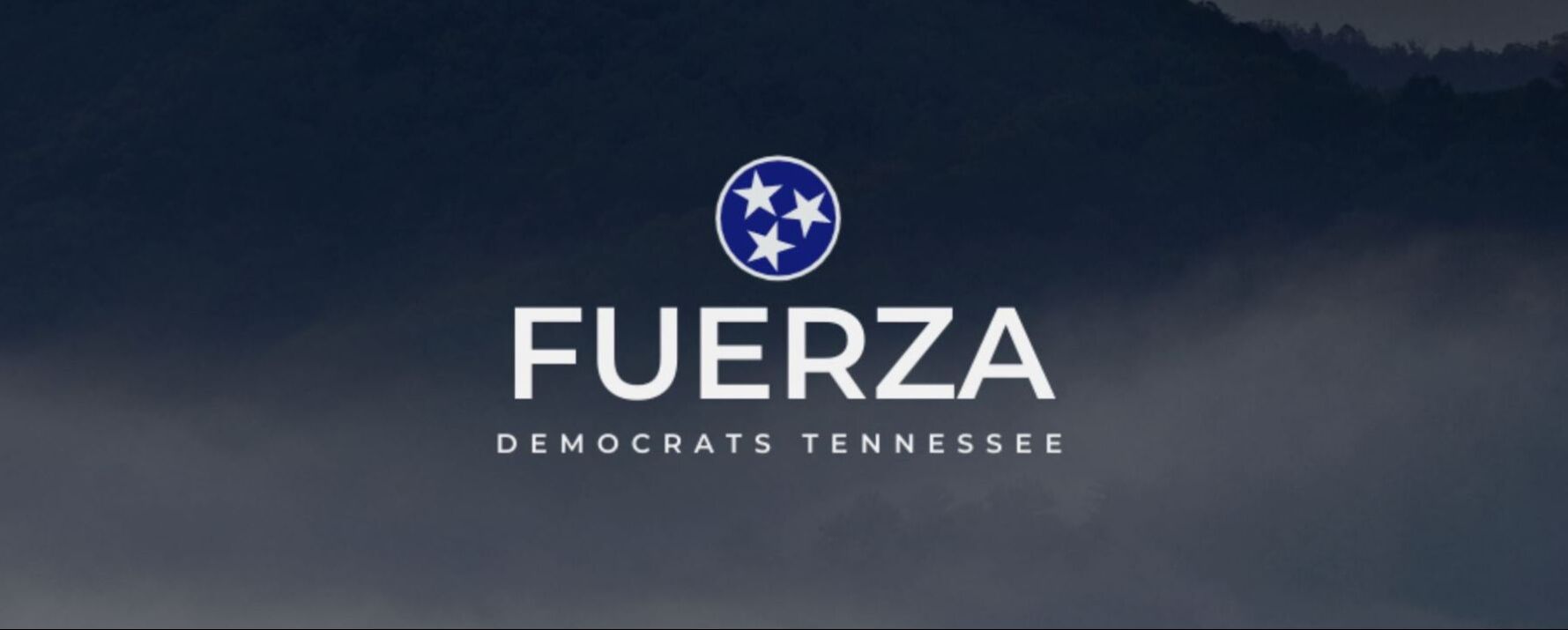 Fuerza Democrats Tennessee is a state political action committee established to identify, organize, educate, and mobilize Latinos across the state and engage them in the political process. On their website, the group offers information, such as if Latino voters are allowed an interpreter to the polls, what to bring when voting, how to become a US Citizen, and more. In May, the organization registered as a political action committee (PAC) with the Tennessee Secretary of State’s office. A PAC pools campaign contributions from members and donates those funds to campaigns for or against candidates, ballot initiatives, or legislation. The organization says by becoming a PAC, they want to ensure that the growing Latino population in the state is reflected at all levels of government. The committee will be led by Sandra Sepulveda, the group’s founding Executive Director. I spoke with board member Luis Mata on why the organization made the decision to become a PAC. He says it began with a phone call, that lead to strategy meetings on how the Latinx community can be represented statewide, and the next thing he knew Fuerza was registering as a political action committee. We're extremely excited for this. And, you know, our ultimate goal is to, you know, center the voices and lives of the Latinx community all across the state. Mata says oftentimes the Latinx community sees a lack of representation and engagement where they live, and with this PAC they want to change that and amplify those voices. He says Fuerza Democrats Tennessee goes into Hispanic neighborhoods and educates them on local candidates running for office, what they advocate for, and how this could impact the community. Mata says the group advocates for themselves and all marginalized communities, such as the Black or LGBTQI community. He believes Fuerza is creating a feeling of space, that has been lacking in Tennessee, and filling it with individuals who are directly impacted. He says the power is within themselves, and being the voice is how their mission will be accomplished. President & COO of Chattanooga company Co.Starters, Jose Alfaro, supports Fuerza’s decision. He believes if you don't have someone representing you, you're not getting your voice heard in this county. Alfaro says if community members explain that politics is not just policy, but that we as a community are here to help, form relationships, and showcase how amazing the Latino community is, they’ll want to participate in the growth of the city and the state. Fuerza Democrats do a lot of work with undocumented people, who cannot vote, and are being left out of the conversation. Luis Mata says while the right to vote is an essential tool, it is also equally as important to speak with those who can’t and show them what they can do to get others to vote, and spread the message of how that vote affects the Hispanic community. According to Pew Research Center, only half of the country’s 60 million Hispanics are eligible to vote, which is the smallest share of any racial or ethnic group. PEW says many Hispanics in the United States are under 18 years old, and 11.3 million are non-citizen adults. The Research Center also says two in three eligible Latino voters live in just five states. California alone holds about a quarter of the nation’s Latino electorate, with 7.9 million Latino eligible voters. Texas is second with 5.6 million, followed by Florida, New York, and Arizona. In 2020, Former President Trump did not win most of the Latino vote in any state, however, he came close in Florida, where the Cuban American vote was decisive, according to AS/COA. Latino voters’ strongest showings for the Republican presidential candidate was in 2004 and 1984, and for the Democratic one in 1996 and 2012. Research also shows Latino voter’s showings for Democrats in 2020, was 66%, Republicans were 32%. For a long time, the Hispanic population voted Republican, but according to PEW in 2018, for the midterm elections, three out of four Latino voters supported a Democratic candidate. Hamilton County Democratic Party Chairman Rodney Strong says many Hispanic voters are more conservative, because of their religious background or national origin, however this seems to be changing. In Hamilton County, based on the latest Census, 6% of residents are Hispanic, that's more than 21 thousand people. In 2018 that number was 5.86%, which means the Latino community is growing. Given these statistics, I asked Chairman Rodney Strong what he thinks seeing representation in leadership will mean to the Hispanic community. Strong says having representation will help HCDP and others do a better job in reaching the Latino community. He says sometimes there is a failure to understand leaders and residents have to reach out to others to understand their point of view and address their needs and concerns. Strong says they reach to local organizations in the county to reach Hispanic voters. As a group, he says the HCDP tries to get residents out to the ballot box by sending information in the mail, by phone, and by hosting gatherings. He says they are looking to have their first picnic on June 10th, it's their first since the pandemic began. As reaching voters has been a struggle because of COVID-19, I asked Strong if it was hard to elect Democrats in Hamilton County since we are considered a red community. He says the democratic vote is here, it’s just getting people out to the polls on election day. He says in 2008 President Barack Obama carried Hamilton County. This past year, 53.9% voted for President Trump, and 44.2% voted for current President Joe Biden, which is only a 9.7 percent difference. It’s also one of the closest margins in the state. Strong says while the blue vote is here, the rural areas like Bledsoe, Bradley, and Grundy County are hard to flip, and each party gained voter participation in the recent election. Chairman Strong says it will take some time for Tennessee to turn blue, just as Georgia did, but right now they are focusing on a local grassroots level to get the word out about these candidates and get voters to the polls during election season. The Hamilton County Democratic Party Headquarters are open on Monday and Wednesday from 1 PM to 4:30 PM. You can also reach them by phone (423) 508-9817, or by email (HCDP, Chairman Strong). If you would like to become a volunteer, click here to fill out a form. More for information on the organization or to donate you can head to their website by clicking here. If you would like to get involved with Fuerza Democrats Tennessee you can follow them on social media, spread the word about the committee, and donate to the committee through their ActBlue link by clicking here. With donations, they can support candidates. They are also planning their calendar for events, so be on the lookout for that.
In Tennessee Governor Bill Lee has signed two of five anti-transgender bills into law in 2021, that have made their way through the Tennessee legislature. On March 26th, the governor signed House Bill 228 into law. The bill bans a transgender athlete from playing in a sport unless it matches their birth certificate.
One month before signing the bill, the Governor was quoted saying, allowing transgender girls to play on female sports teams would "destroy women's sports" the governor said it would "ruin the opportunity for girls to earn scholarships." Lee says the legislation was in response to President Biden's executive order which protects from discrimination based on sexual orientation.
On May 4th, Senate Bill 1229 was also signed into law by Governor Lee. This bill would require a school district to notify parents before “providing a sexual orientation curriculum or gender identity curriculum” in any kind of lesson plan, including but not limited to education on sexuality. The bill says school districts would have 30 days to tell parents or guardians of upcoming instruction on sexual orientation or gender identity. Families could then opt their children out of the learning without being penalized.
If students are going to grow up in a world with LGBTQ people, which they are, it is putting them in a pretend world, that they can opt out of dealing with LGBTQ people
I spoke with Chris Sanders, who is the executive director of the Tennessee Equality Project. He believes bills such as these, are "very stigmatizing" and are damaging to the LGBTQ+ community, particularly transgender youth. He says, trans young people, are being "targeted" by these bills, whether it's healthcare, sports, or bathrooms. He says it is damaging to their health and well-being.
This is the is a ridiculous burden on schools for a discriminatory bill.
The Tennessee legislature has also passed three other bills, which are either on Governor Lee's desk, or making their way to his desk.
As of this article posting, the governor has not yet signed or vetoed any of the three bills. (Update: 5/18/21: All three of these bills have now been signed by Governor Bill Lee) Chris Sanders says House Bill 1182 would create dangerous scenarios for transgender people and could also lead to targeting of trans inclusive businesses. He says it is disheartening to see legislators spending time on a bill like this, that he says no one asked for.
Sanders and I also spoke about how the Tennessee Equality Project helps those in the LGBTQ+ community. A big part of their work is monitoring legislation affecting the community and coordinating the fight against it. Sanders says they have done over 33 email campaigns on the bills as they moved through the legislature this session. They have also held five phone banks, and helped more than 50 people meet with legislators and representatives in their district. The project also coordinates with other organizations like the ACLU, the Human Rights Campaign, Freedom for all Americans, and more. Sanders says the groups work together with a unified voice to fight these bills.
Tennessee Equality Project also focuses on mental health. Their Tennessee Counseling Unconditionally program is in response to a law that was passed a few years ago, The law says counselors in Tennessee could opt out of serving people, based on their personal views. The project has a digital map on its website that will show people where they can find affirming counselors. According to the Movement Advancement Project (MAP), 3.5% of adults in Tennessee identify as LGBTQ, 223,000 of those 23 and older are LGBTQ. So, how do these laws affect those in your community and around the state? MAP shows the state of Tennessee ranks low when it comes to nondiscrimination laws. The state does not have employment, housing, or public accommodations nondiscrimination laws. The project says because of a June 2020 U.S. Supreme Court ruling, people in all states can seek recourse for employment discrimination based on sexual orientation and gender identity through the federal Equal Employment Opportunity Commission and federal courts.
Here in Hamilton County/Chattanooga, we do not have full protections for sexual orientation or gender identity. However, this is also the case for the entire state.
So, what can Tennessee do better to protect the rights of the LGBTQ plus community? According to Sanders, the state could adopt protections similar to what's in the Federal Equality Act that is going through Congress right now. He also believes schools, could be more accepting of gender sexuality alliances and do more work on bullying in schools.
I requested an interview with LGBTQ+ organizations in Chattanooga, but have not received a response back for this article posting. If you would like to speak with someone with the Tennessee Equality Project click here. For more information for local organizations such as Chattanooga Pride or the Nooga Diversity Center, their websites are linked. |
AuthorMy name is Jess and I love telling other peoples stories and bringing awareness to the community. Archives
June 2024
Categories |
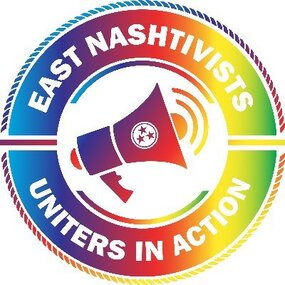










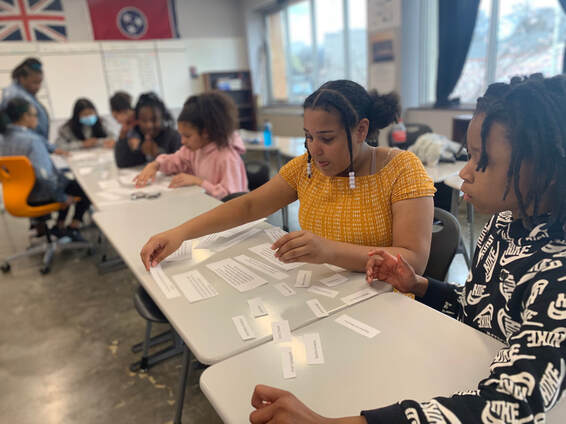
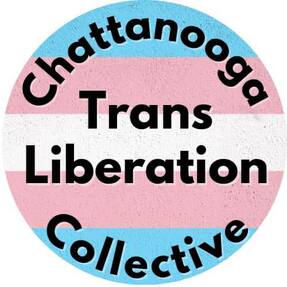


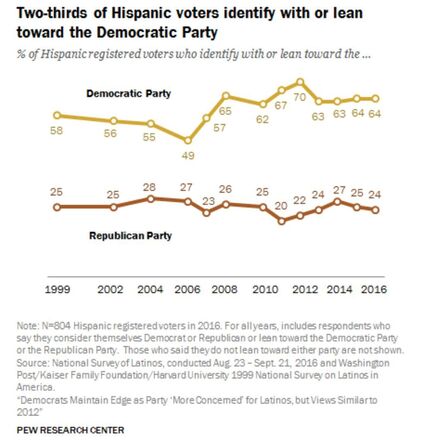
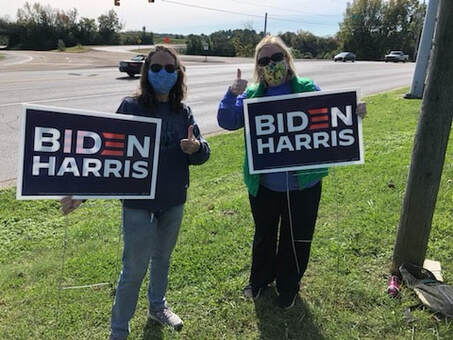
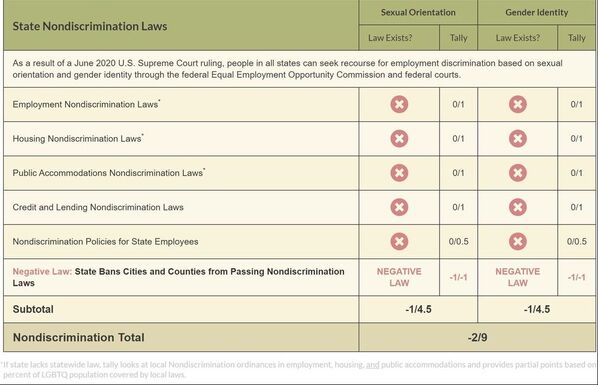
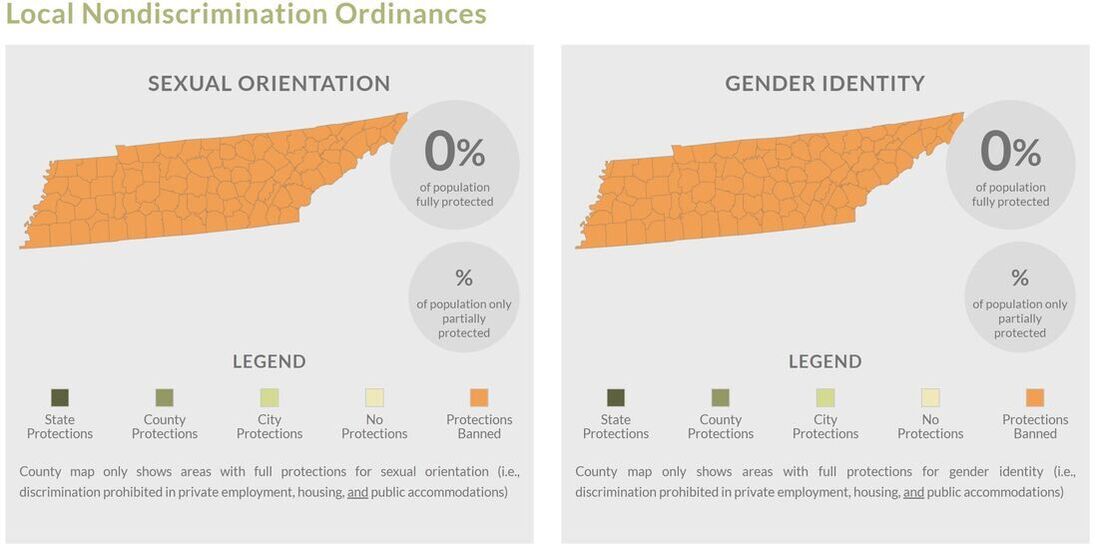
 RSS Feed
RSS Feed